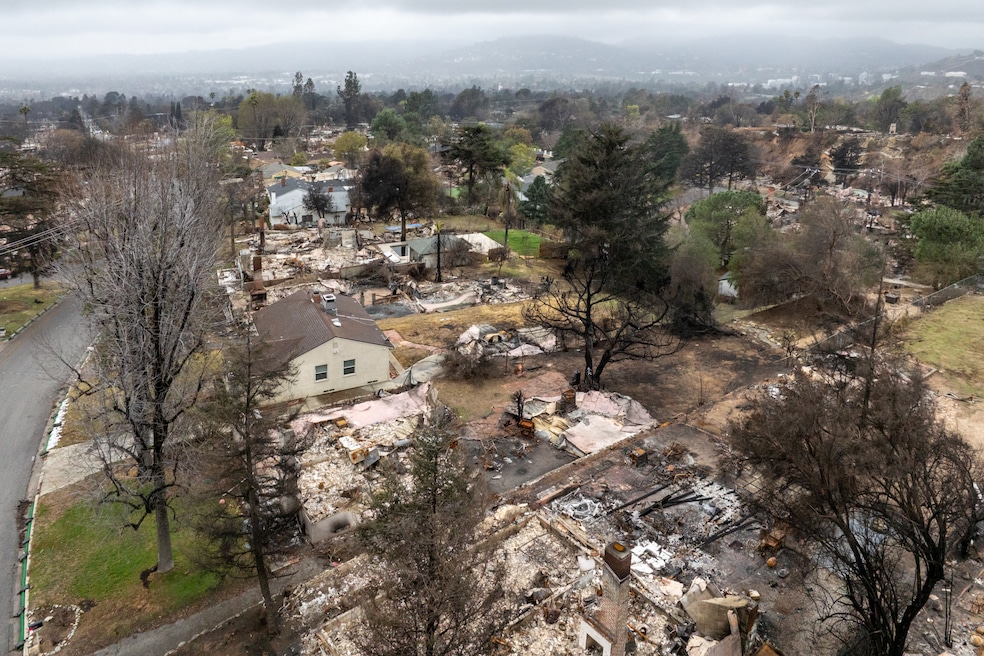Homeowners could see tax benefits if they equip their properties to withstand natural disasters.
On Tuesday, Senators Adam Schiff, Democrat of California, and Tim Sheehy, Republican of Montana, introduced a bill that would award tax credits to residents who upgrade their homes with weather-resistant materials.
If passed, the law known as the Facilitating Increased Resilience, Environmental Weatherization And Lowered Liability, or FIREWALL, Act, would establish a tax credit to cover eligible upgrades up to $25,000. Those upgrades include things like water hydration systems, roofing materials, stormwater barriers, air filtration updates, the removal of vegetation near a home and fire-resistant fencing. The credits would apply to residents living in states that have experienced a federally declared disaster anytime in the past 10 years.
The credit would cover 50% of the upgrades for families earning less than $200,000 per year. For taxpayers making between $200,000 and $300,000, that coverage would be lower.
In other words, homeowners who invest in natural disaster-resistant upgrades would pay less in taxes.
Investing more in disaster-resistant housing
The bill comes as communities across the country are in various stages of recovery from disaster. Last fall, devastating hurricanes pummeled the Southeast, leaving trails of destruction from North Carolina to Florida. In January, California suffered one of the costliest natural disasters in its history when a firestorm ripped across the Los Angeles area. And even more recently, the Midwest has suffered a torrent of windstorms and tornadoes.
Some builders have already started implementing similar tactics to equip homes to better withstand natural disasters.
Homebuilder KB Homes, for example, unveiled its first wildfire-resistant development in Escondido, California, last month. Houses in the neighborhood have Class A fire-rated roofs that are resistant to extreme flames, as well as noncombustible gutters, special windows and doors, and ember- and flame-resistant vents. There’s also a 5-foot buffer around structures on the same property.
Schiff and Sheehy say their bill could stymie some of the damage expected from future disasters.
“Given the unpredictability of a natural disaster, this bipartisan bill ensures that the American people receive the support they need to safeguard themselves against future disasters,” Sheehy said in a statement.


